Where is the Nutrition Education Counseling Center (NECC) located?
The NECC is located on the second floor of Caudell Hall in Suite 212.
Who gets to use the NECC?
The NECC is open to all Buffalo State students. The Health fee (charged each semester) is a mandatory charge. In addition to supporting the operation of the Weigel Wellness Center (which includes the NECC), the fee is used to promote many health and wellness programs conducted for the benefit of students. The Health Fee is not health insurance and is mandatory for all students. The Health Fee cannot be waived except by Distant Learners (those who reside outside of Erie and Niagara counties and are enrolled exclusively in other types of classes that never meet on campus).
What is the difference between a dietitian and a nutritionist?
According to nutritionED.org:
"Many people mistakenly use the terms “dietitian” and “nutritionist” interchangeably. Although these two professions are undoubtedly related, they maintain distinctive qualities. The biggest difference between dietitians and nutritionists lies in the legal restrictions that each title carries. Only nutritionists that become registered with Commission on Dietetic Registration (CDR) may legally declare themselves as dietitians or more precisely, registered dietitians (RDs).
Unlike dietitians, the nutritionist profession is much less protected under the law. In fact, nutritionists that do not intend to use the titles of “dietitian” or “registered dietitian” are often free from government regulation. Some states may require nutritionists to obtain an occupational license from a Board of Nutrition, while other states allow individuals to practice as nutritionists without any previous education, training or work experience.
Education Difference between Dietitians and Nutrition
According to the Academy of Nutrition and Dietetics, registered dietitians are required to complete a formal education program that results in at least a baccalaureate degree. This program must be approved by the Dietetics’ Accreditation Council for Education in Nutrition and Dietetics (ACEND) and include a practical component performed in a career-related site. In addition, the program must provide coursework that covers subjects in:
Foodservice systems management
Food and nutrition sciences
Computer science
Chemistry
Business
Microbiology
Sociology
Biochemistry
Physiology
Economics
Although some nutritionists may not need any educational background to practice in their state, they will likely need to complete some formal coursework in nutrition-related subjects to qualify for employment. Nutritionists that seek the certified nutrition specialist (CNS) credential are required to complete a baccalaureate or advanced degree in a nutrition discipline to qualify for the certification examination.
Credentials for Dietitians and Nutritionists
The Academy of Nutrition and Dietetics offers dieticians the opportunity to earn the registered dietitian (RD) credential. To become an RD, dietitians must: complete a baccalaureate degree from an ACEND-approved program; complete an ACEND-approved supervised clinical program; successfully pass the CDR registration examination; complete continuing professional education credits needed to maintain registration.
The Board for Certification of Nutrition Specialists (CBNS) offers nutritionists the opportunity to earn the certified nutrition specialist (CNS) credential. To become a CNS, nutritionists must: complete a master’s or doctoral degree in a field-related discipline; complete 1,000 hours of supervised practical experience; successfully pass the CBNS certification examination; complete continuing professional education needed to maintain certification."
Do I need health insurance to be seen at the NECC?
Your NECC appointment is covered by the Health Fee. All full-time students are required to have insurance (either your own, under a parent). Health insurance is needed for emergency room visits, urgent care, prescriptions, X-rays, physical therapy, vision, and dental services, to name a few. Not all insurances are covered outside of your residential area. It is the students' responsibility to contact their insurance carrier to determine what for and if they cover in the Buffalo area.
How do I schedule an appointment with the dietitian?
Due to the pandemic, the NECC is operating at a very limited capacity. If you would like to request an appointment, please contact Elizabeth Hartz in the Health, Nutrition and Dietetics department (716) 878-4333 or email: hartzea@buffalostate.edu
Will my parents know I was seen at the NECC?
According to FERPA regulations, the NECC does not disclose any medical information without written consent from the student.
What services are provided at the NECC?
The NECC provides many services that may be beneficial to our student community to include but not limited to:
Individual nutrition counseling and therapy
Group nutrition counseling (topic requests can be made)
Nutrition seminars
"Dine with a Dietitian"
Grocery tours
...and more!


